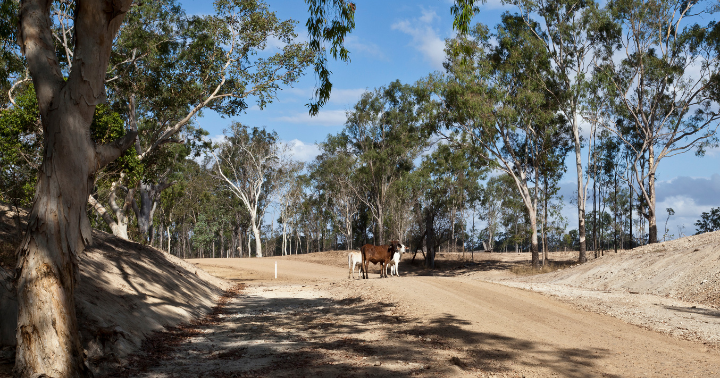
Franchising Update: Key Changes Affecting You
New changes have been introduced to the Franchising Code of Conduct (the Code). Franchisors should inform themselves of these changes to ensure they are compliant, while Franchisees will need to know the current updates to ensure their rights are protected. In this article, we explain the amendments, the legal implications and why they matter to your business.
In short
- When will it come into effect & Who will be affected? All Franchisors and Franchisees should be aware of the changes that began on 1 April 2025 (with some changes not actually taking effect until 1 November, was will be explained below);
- What is it? Franchisors and Francshisees who enter into a new franchise agreement, or anagreement to extend, renew or transfer an existing franchise agreement and the conduct of
each party to effect these changes; - Where can I find more information? Refer to the Competition and Consumer (Industry Codes – Franchising) Regulations 2024 (Cth) Franchising Code of Conduct; and
- Why should you be aware of it? These changes will govern your rights under your agreements and depending on whether you are the Franchisor or the Franchisee, you should be aware of your obligations under the Code.
To begin with, it’s not quite ‘out with the old and in with the new’. For those agreements entered into prior to 1 April 2025 the old Code will continue to govern the operation of your agreement. However, at the point that you extend, renew or transfer the agreement after this date then the new Code will apply. Furthermore, for some provisions, there is a transitional period until 1 November 2025 that allows Franchisors to make updates over time.
So, lets unpack the differences.
Termination Provisions
The Code contains updated termination provisions. Franchisee’s may dispute termination of the
agreement by the Franchisor on three specific grounds:
- voluntary abandonment;
- operation of the business in a way that endangers public health and safety; and
- fraudulent operation of the business.
This can be disputed through the usual alternative dispute resolution (ADR) processes allowed for under the Code.
Section 57 prohibits the Franchisee from disputing termination on the listed ‘particular grounds’. These include usual circumstances, such as, bankruptcy or insolvency, no longer holding a licence, under investigation by ASIC, etc. The Franchisor may terminate the agreement on 7 days’ notice.
ADR
The Code now allows the Ombudsman to ‘name and shame’ Franchisors that are party to a dispute if they refuse to engage in, or they withdraw from, an ADR process. This encourages Franchisors to properly engage in this process, thereby allowing an efficient and cost-effective method for Franchisees to seek resolution of their disputes.
ROI & Early Termination Compensation Provisions
The Code introduces civil penalty provisions for Franchisors in specific termination and return on investment circumstances that were previously only applicable to new vehicle dealerships. All new franchise agreements must now include compensation to Franchisees, if the Franchisor terminates the agreement early due to the Franchisor’s:
- withdrawal from the Australian market;
- restructure of its networks in Australia; or
- changes to its distribution models in Australia
The compensation mechanism must be specified in the agreement with reference to lost profit, capital expenditure, loss of opportunity and any costs of winding up the business. In addition to above, the franchise agreement must allow the Franchisee a ‘reasonable opportunity’ to make a return on their investment. What a ‘reasonable opportunity’ means is quite subjective and may only become clear with the passage of time, but as a starting point would generally mean a Franchisor to provide adequate training (and in some instances re-training) to ensure Franchisees have a good chance of profiting from their investment.
Significant Capital Expenditure
It is now a requirement under the Code that the Franchisor discusses with Prospective Franchisees the significant capital expenditure – Franchisors are currently required to outline this in the Disclosure Documents but this is an ‘added step’ Franchisors must comply with. This includes explaining whether or not the Franchisor considers it likely that the Prospective Franchisee will recoup their expenditure. Franchisors that fail to comply with this obligation may face civil penalties.
Restraint of Trade
The Code now applies a penalty to Franchisors who enter into an agreement that contains a restraint of trade clause in certain circumstances. This will apply where:
- the agreement ended; and
- the agreement contained an option to renew or extend; and
- the franchisee has:
a. given notice to renew or extend the agreement;
b. met all conditions in the agreement;
c. is not in serious breach of the agreement; and
d. has not infringed the franchisor’s intellectual property; and
- despite the above:
a. The franchisor did not renew or extend the agreement; and
b. No genuine compensation was provided for in the agreement; or
c. The agreement did not allow the franchisee to claim compensation for the goodwill of the business.
As noted above, these are certainly quite specific circumstances. However, Franchisors will need to include an option to pay genuine compensation to Franchisees or otherwise risk their restraint of trade
clause being inapplicable.
Specific Purpose Funds
‘Marketing’ or ‘cooperative’ funds have been redefined to ‘specific purpose funds’ and expanded to include all funds required to be paid by Franchisees for a common purpose. The Franchisor will have until 1 November 2025 to comply with the Code and make necessary changes to accommodate this.
From this point on, all specific purpose funds will be required to be kept in separate accounts, be audited within 4 months of the end of financial year. Where the Franchisor operates one or more of
their franchised businesses, they too will be required to contribute to the specific purpose fund on behalf of that business.
Disclosure
The Code clarifies processes of disclosure for both parties. A Franchisee may opt out of both receiving the Disclosure Document from the Franchisor and the cooling off period. Additionally, where Franchisees request updated Disclosure Documents, Franchisors are only required to update these at the end of the financial year in which the request is made. Ongoing disclosure remains required by all Franchisors where they are involved in any proceedings by a public agency or judgement is made against them under the Fair Work Act.
How Enterprise Legal can assist your business
If you are a Franchisor who needs to make changes to your Franchise Network, a new Franchise who is in the process (or about to) set up a new Franchise Network or a Franchisee in the process of entering into a new agreement or renewing/extending your current agreement you should seek advice from Enterprise Legal’s dedicated Business Law team to give you confidence in navigating these new laws.
Contact us at (07) 4646 2621 or









